My Melissa Spear
Executive Director
A couple of weeks ago Kate Cebik, Common Ground’s Development Associate, forwarded an email she received in response to our most recent newsletter. The email lamented at how my recent blog posts have “politicized” Common Ground and expressed dismay that I am using my “influence to cause more division in our country.”
I first want to express my appreciation to the writer for sharing her thoughts about my posts. Second, I want the writer, and all of you, to know that I worry a lot about how divided our country is. I reflect often on the damage that these divisions are causing to the fabric of our democracy and our sense of community, and feel constantly challenged to find ways out of the current paradigm of a country divided.
It is so easy, and so tempting, to paint our world in black and white – democrat vs. republican, liberal vs. conservative, urban vs. rural, the coasts vs. the middle, the 1% vs. 99%, the elite vs. “the people.” But once we have used this brush there are only two places to be – on one side or the other. More importantly there is no humanity in this simple approach to categorizing the perspectives of people. There is no recognition that at heart there is much we all have in common regardless of our views.
I believe we all want to create a good life for our children and ourselves. We want to be part of a healthy community. We want our families, our communities and our country to be safe and free from violence. We want to be productive and useful. We want to feel loved, appreciated and cared for. We want to have control over our destinies, and agency to determine our futures. We want to be treated fairly and justly.
Recognizing that we share a common set of goals may help us to see beyond the simple black and white characterizations, but when our ability to realize these goals feels under threat, the divide looms wide. The threat has to come from somewhere, and the most undemanding conclusion is that “somewhere” is on the other side of the divide, however we choose to define it.
Resorting to blaming whoever we choose to put on the other side of “the divide” is a logical way of simplifying complex problems to make them seem surmountable – if this person would just come to my side we would not have this problem.
But it does not generate realistic solutions to the serious challenges our nation, and the world are currently facing. Dealing with a complex, or as some say, a wicked problem, requires real effort and dedication.
First, we have to actively seek accurate, factual information that will help us to understand the roots of the threats that are dividing us. Second, as uncomfortable and frustrating as it may be we have to step into the shoes of those who seem to be on the other side of the divide to not just understand, but to empathize with what has led them to their position. Third, we need to be mindful of putting emphasis on individual differences and think instead in terms of systems.
Most of our challenging problems have systems that serve to perpetrate them. If we can remain focused on understanding and dismantling the systems that are helping to oppress and deceive people we will be much more effective in realizing our common goals. We must embrace the complexity. Look under the hood – why do systems exist? Who do they benefit? At whose expense?
All that being said, the palpable sense of a divide in our country is very challenging for me, and to be honest, I am just as susceptible to perpetrating the divide as anyone. I often feel frustrated, and I am often driven by the fear that the positions being taken by those in power are a threat to me, my loved ones, and my community. I am constantly fighting against my own tendencies to put people on a side, and to lay blame on one side or another for our country’s, and our world’s problems. But I am fighting. And this is what I want my email correspondent to know.
One of Common Ground’s strategic priorities commits us to building an inclusive, just and equitable community wherever we do work, both on and beyond our campus. Inclusiveness is tricky at a time when the divisions seem so great. The threats to my community that are being created by our administration’s current policy positions are real, and in my position at Common Ground I have an obligation to respond to them. My response is not political however, it is practical.
That being said, while I may be compelled to take a position on specific policies, Common Ground is here to serve everyone regardless of your position, or view of the world. What we do is not exclusive.
What we do is meant to bring joy to everyone and anyone. It is in this work–this creating connections to the natural world, and to the food we eat, and in creating opportunities for learning and growth, and in doing this work with commitment and joy–that whatever seems to be dividing us should disappear and become meaningless. It is in this work that I hope we can recognize our shared humanity and our common goals, and perhaps step into each-other’s shoes and come to understand, and even empathize with one another in a way that helps to find that common ground we all yearn for.
That is really what Common Ground is about, and what all of us here at Common Ground work for every day. With an open heart, I invite all of you to join us.

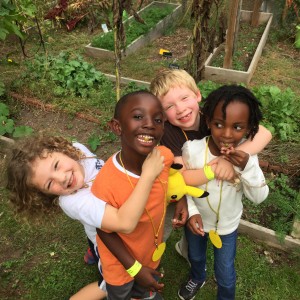
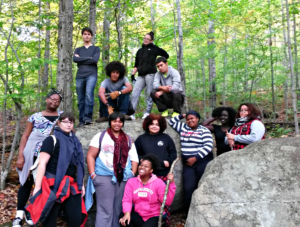
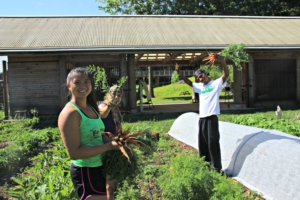
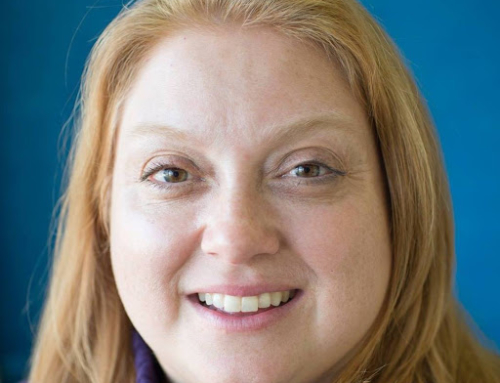
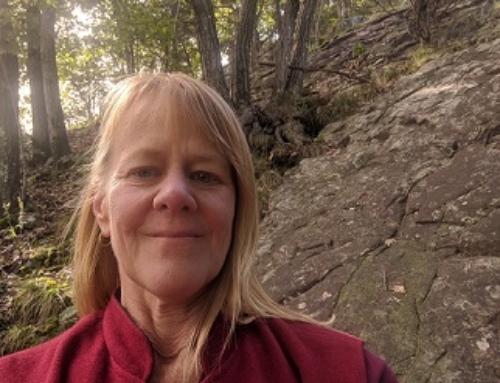
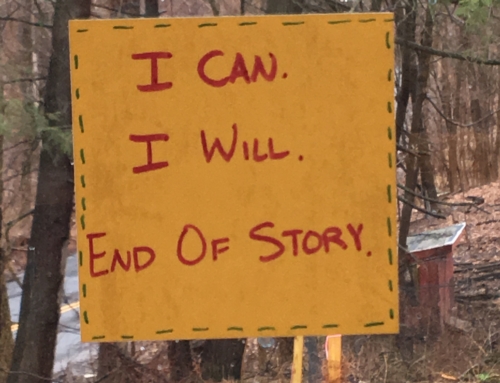
Leave A Comment